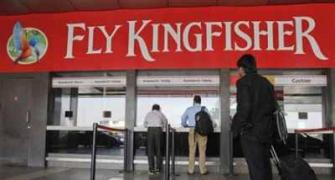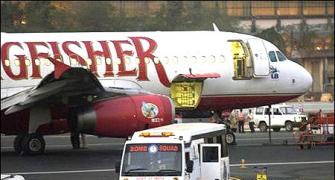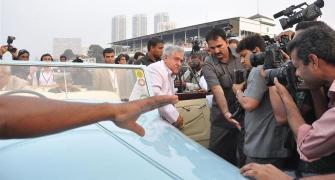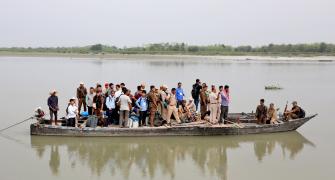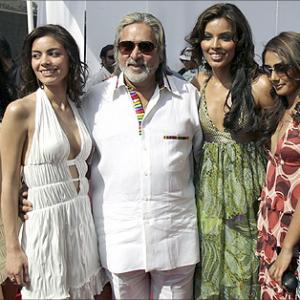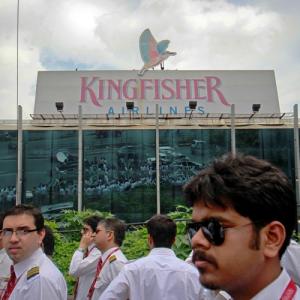In the frenzy of the debate over whether Vijay Mallya is a 'defaulter' or an 'absconder', a critical business asset has been needlessly sullied, says Shailesh Dobhal.
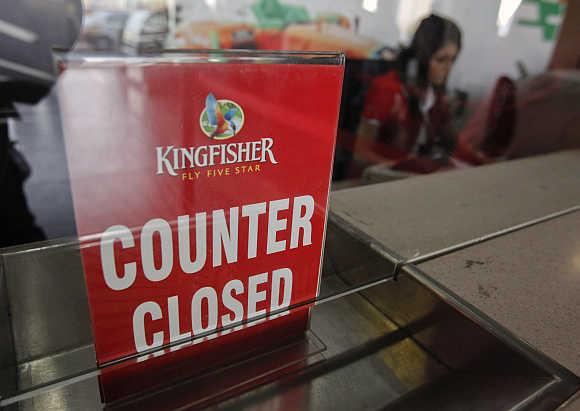
As a reporter who broke the story on the Kingfisher (KFA) brand being offered as collateral for a big loan from the country's largest lender seven years ago, I have watched the current imbroglio around the issue with much amusement.
Is the Kingfisher airlines brand really worth Rs 4,000 crore (Rs 40 billion)?
Or whatever figure that has been thrown around since liquor baron Vijay Mallya "left" the country earlier last month, leaving his creditors sore and the government red-faced?
How can a bank really lend hundreds of crores against an intangible, ephemeral quantity such as a brand?
The KFA brand debate has been rich with suggestions that all is not hunky-dory - from the valuation and timing of the loan to the airline-versus-beer demarcation and much else.
While we are yet to hear the last on the issue from bankers, investigative agencies, the owner of the (non-aviation) Kingfisher brand and Mallya, and there may or may not be a mala fide intention on the part of the players involved, I think the current debate has gone off-kilter as far as the brand per se is concerned.
How much do you think intangibles like brand, intellectual property, customer relationships and talent are worth in today's connected, knowledge-driven global marketplace?
According to a recent study, "Global Intangible Financial Tracker 2015", by London-based brand consultant Brand Finance, of the $71-trillion total enterprise value of the world's top 58,000 listed firms in more than 120 countries (at the end of 2014), less than half is made of tangible assets like land, factory, machinery and office.
And the rest $37.5 trillion is accounted for by intangibles like brands, goodwill and undisclosed value.
The report notes: "Undisclosed value and goodwill make up more than 80 per cent of the value of intangibles. They are both calculated after the fact and contain little or no information about the drivers of intangible value. They are therefore of limited value to stakeholders who wish to influence how intangibles and enterprise value are generated."
So it is true that over three-fourths of the intangibles are made of goodwill and undisclosed value, around $ 11 trillion or over 15 per cent is still accounted for by "disclosed" intangible assets in brands, trademarks and licences.
And India, according to Brand Finance's study, was among the top 10 intangibles-led country, with over half the total enterprise value of its listed firms accounted for by intangibles.
But what happens when something goes wrong with a business? In cases of acquired assets, like Tata Steel and Corus, there is goodwill impairment - as much as half of over $ 3 billion of its accrued goodwill, in Tata Steel's case, has to be written off the acquisition price.
Similarly, British telecommunication company Vodafone wrote down over a fourth of its over £80-billion goodwill in 2006 due to the Mannesmann acquisition in Germany.
Note that this impairment is from "disclosed goodwill" sitting on the balance sheet as a result of the acquisition. And the impairment is outside the black hole in "undisclosed value".
The brand, part of the disclosed intangibles, suffers too, and in cases of acquired assets the impairment review takes cognisance of any loss here too.
Though financial reporting the world over does not mandate impairment of "non-acquired" intangibles, it is anyone's guess that they too suffer massively in case of a failed business like Kingfisher Airlines.
So it is clear that intangibles have great business and financial value, and these assets too gain or suffer as the business goes up or down.
So what's wrong with using intangibles like the brand for a loan collateral?
It is measurable, monetisable and tradable much like physical assets, and audit-wise it seems kosher too.
The only concern - and that's what the current debate around the KFA brand should focus on - is whether it was rightly valued and defined, whether the loan amount extended against the asset was fair, and whether the borrower and the lender had proper oversight on its value as the KFA business headed south.


